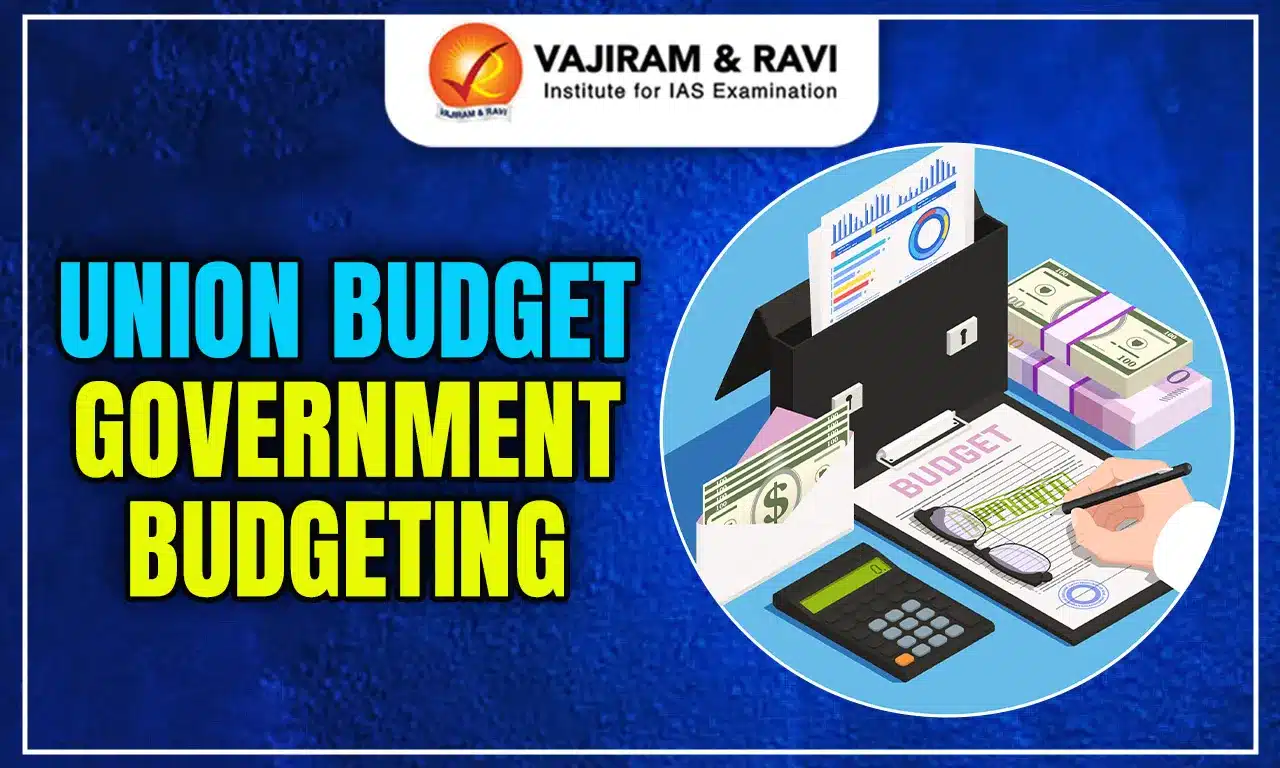What is the concept of budget, and what are its objectives?
A budget is an annual financial statement for a specific period of time, usually a year, that outlines projected income and expenses. It is used as a tool for managing financial resources and achieving specific goals such as mobilization of resources, fiscal consolidation, etc.
- The national budget is prepared by the budget division under the Department of Economic Affairs (DEA), the Ministry of Finance and is presented to the Parliament for discussion and approval.
- The budget is used as a tool to manage the country's financial resources and to achieve the government's economic and social policies.
- The budget also helps to identify potential economic risks and opportunities and to make informed decisions about spending and taxation.
What are the constitutional requirements which make the Budget necessary?
| Provision | Description |
| Article 112 |
|
| Article 113 |
|
| Article 114 |
|
| Article 266 |
|
| Article 267 |
|
Table: Constitutional provisions related to budget
What are the different constituents of the Union Budget?
In addition to the estimates of receipts and expenditures, the budget contains certain other constituents as follows
- Estimates of revenue and capital receipts;
- Ways and means to raise the revenue;
- Estimates of expenditure;
- Details of the actual receipts and expenditure of the closing financial year and the reasons for any deficit or surplus in that year; and
- Economic and financial policy of the coming year, that is, taxation proposals, prospects of revenue, spending programme and introduction of new schemes/projects.
- It includes revenue from taxes, fees, and other sources, as well as expenses for government programs, public services, and infrastructure projects.
- The budget also usually includes estimates for debt and deficit, which is the difference between the government's expenses and revenues.
What are the different stages of the budget session in parliament?
The budget goes through the following six stages in the Parliament:
- Presentation of the budget: The budget is presented in the Lok Sabha on 1st February every year by the Union finance minister. The finance minister gives a budget speech, and at the end, the budget is laid before both houses.
- General discussion: Lok Sabha can discuss the budget as a whole or on any question of principle involved therein, but no cut motion can be moved, nor can the budget be submitted to the vote of the house. The finance minister has a general right to reply at the end of the discussion.
- Scrutiny by departmental committees: An in-depth scrutiny of the demand for grants by the department is made by each departmental standing committee of parliament. Three to four weeks are given for this, and the house remains in recess. The standing committees make a report to the house at the end.
- Voting on demand for grants: The MPs of Lok Sabha vote on each demand for grants. The Lok Sabha only can vote on a demand for grants, and no voting is allowed on the expenditure charged on the consolidated fund of India.
- Passing of appropriation bill: No money shall be withdrawn from the Consolidated Fund of India except under appropriation made by law. Accordingly, an appropriation bill is introduced to provide for the appropriation out of the Consolidated Fund of India.
- Passing of finance bill: The Finance Bill is introduced to give effect to the financial proposals of the Government of India for the following year.
What is the difference between expenditure charged upon CFI and expenditure made from CFI?
| Expenditure charged upon CFI | Expenditure made from CFI |
|
|
|
|
|
|
Table: Difference between expenditure charged upon CFI and expenditure made from CFI
What is an Interim Budget?
An interim budget is presented by the government of India in the run-up to the general elections.
- Interim budgets are usually focused on outlining the government's proposed spending plans for the next few months rather than for the entire fiscal year.
- It is a statement of the government's financial position and includes estimates of revenue and expenditure for the next financial year but does not include any new policy announcements or proposed tax changes.
- The logic behind the interim budget is that the government which presents the interim budget may not be in power when the full budget is presented later in the year.
- The incoming government, which will hold power after elections, typically presents its own full budget after the general election.
What is the importance of Vote on Account in the union budget?
- The appropriation bill may take time to pass through the Parliament and become law. Meanwhile, the government would need permission to spend even a single penny from April 1 when the new financial year starts.
- Vote on Account is the permission to withdraw money from the Consolidated Fund of India in that period, usually two months.
- A “vote-on-account” only deals with the expenditure in Government’s budget.
- Since 2016, the budget session begins on 1st February (earlier, it was the last week of February). This has decreased the utility of vote on account, as now the passage of the appropriation bill is very much possible even before the beginning of the next financial year.
- Meanwhile, the Vote on Account is still relevant on account of Interim Budgets during the election years.
What are the various grants which are part of the union budget?
Supplementary Grant
- It is granted when the amount authorized by the Parliament through the appropriation act for a particular service for the current financial year is found to be insufficient for that year.
Additional Grant
- It is granted when a need has arisen during the current financial year for additional expenditure upon some new service not contemplated in the budget for that year.
Excess Grant
- It is granted when money has been spent on any service during a financial year in excess of the amount granted for that service in the budget for that year.
- It is voted by the Lok Sabha after the financial year. Before the demands for excess grants are submitted to the Lok Sabha for voting, they must be approved by the Public Accounts Committee of Parliament.
Exceptional Grant
- It is granted for a special purpose and forms no part of the current service of any financial year.
Token Grant
- It is granted when funds to meet the proposed expenditure on a new service can be made available by re-appropriation.
- A demand for the grant of a token sum (of Re 1) is submitted to the vote of the Lok Sabha and if assented, funds are made available.
Vote of Credit
- A vote of credit is granted for meeting an unexpected demand upon the resources of India. It is like a blank cheque given to the executive by the Lok Sabha.
Last updated on November, 2025
→ Check out the latest UPSC Syllabus 2026 here.
→ Join Vajiram & Ravi’s Interview Guidance Programme for expert help to crack your final UPSC stage.
→ UPSC Mains Result 2025 is now out.
→ UPSC Notification 2026 is scheduled to be released on January 14, 2026.
→ UPSC Calendar 2026 is released on 15th May, 2025.
→ The UPSC Vacancy 2025 were released 1129, out of which 979 were for UPSC CSE and remaining 150 are for UPSC IFoS.
→ UPSC Prelims 2026 will be conducted on 24th May, 2026 & UPSC Mains 2026 will be conducted on 21st August 2026.
→ The UPSC Selection Process is of 3 stages-Prelims, Mains and Interview.
→ UPSC Result 2024 is released with latest UPSC Marksheet 2024. Check Now!
→ UPSC Prelims Result 2025 is out now for the CSE held on 25 May 2025.
→ UPSC Toppers List 2024 is released now. Shakti Dubey is UPSC AIR 1 2024 Topper.
→ UPSC Prelims Question Paper 2025 and Unofficial Prelims Answer Key 2025 are available now.
→ UPSC Mains Question Paper 2025 is out for Essay, GS 1, 2, 3 & GS 4.
→ UPSC Mains Indian Language Question Paper 2025 is now out.
→ UPSC Mains Optional Question Paper 2025 is now out.
→ Also check Best IAS Coaching in Delhi
Union Budget (Annual Financial Statement) FAQs
Q1. Is the word “budget” mentioned in the constitution?+
Q2. When was the Railway Budget merged with the General Budget?+
Q3. Which department is responsible for the preparation of the budget in India?+
Tags: quest union budget

















